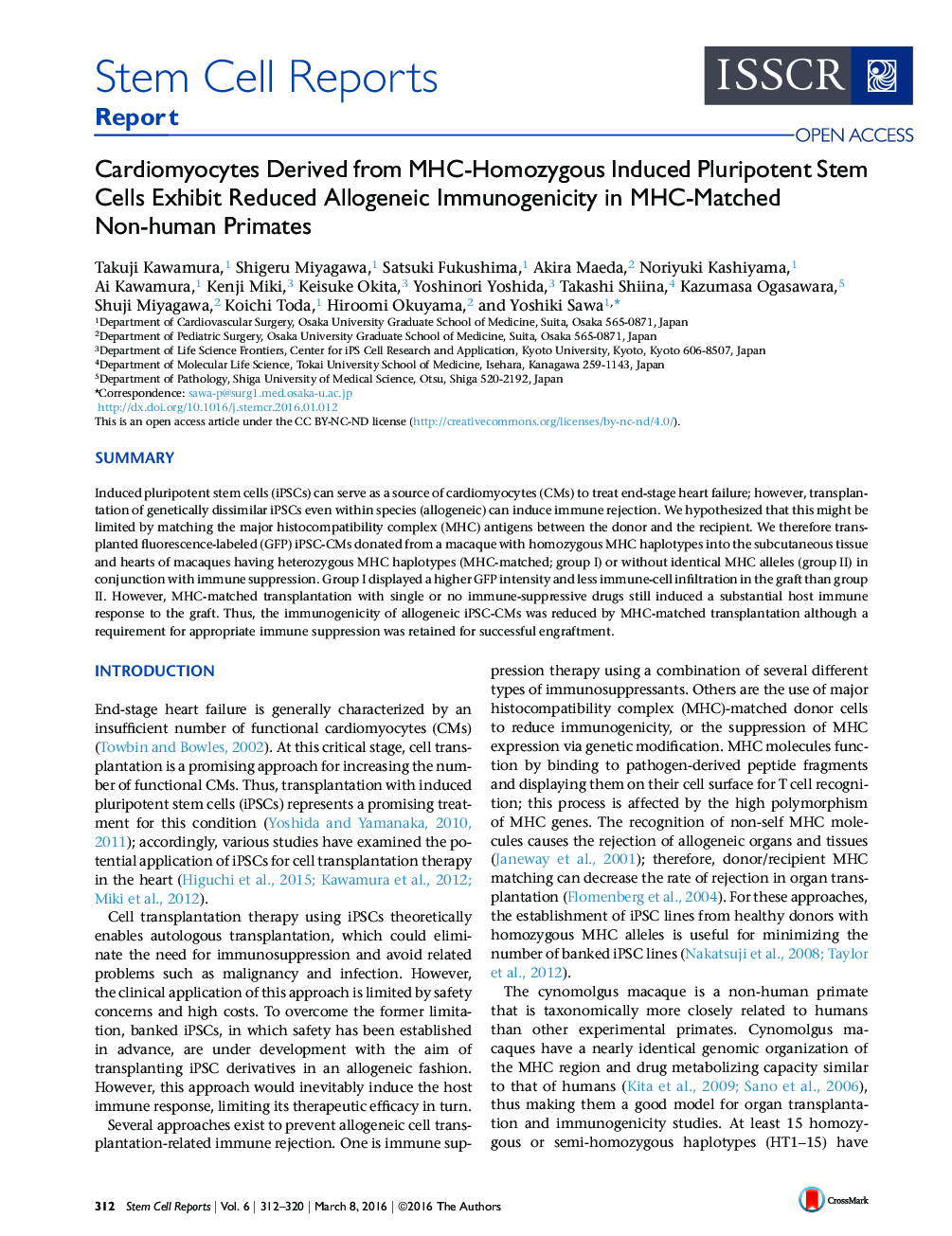| Article ID | Journal | Published Year | Pages | File Type |
|---|---|---|---|---|
| 2093306 | Stem Cell Reports | 2016 | 9 Pages |
•Cardiomyocytes from iPSCs can treat heart disease•iPSC-CMs were transplanted into MHC-matched or unmatched cynomolgus macacques•Matched iPSC-CM grafts had better survival and less host rejection immune response•Immunosuppression was still required for successful allogeneic iPSC-CM engraftment
SummaryInduced pluripotent stem cells (iPSCs) can serve as a source of cardiomyocytes (CMs) to treat end-stage heart failure; however, transplantation of genetically dissimilar iPSCs even within species (allogeneic) can induce immune rejection. We hypothesized that this might be limited by matching the major histocompatibility complex (MHC) antigens between the donor and the recipient. We therefore transplanted fluorescence-labeled (GFP) iPSC-CMs donated from a macaque with homozygous MHC haplotypes into the subcutaneous tissue and hearts of macaques having heterozygous MHC haplotypes (MHC-matched; group I) or without identical MHC alleles (group II) in conjunction with immune suppression. Group I displayed a higher GFP intensity and less immune-cell infiltration in the graft than group II. However, MHC-matched transplantation with single or no immune-suppressive drugs still induced a substantial host immune response to the graft. Thus, the immunogenicity of allogeneic iPSC-CMs was reduced by MHC-matched transplantation although a requirement for appropriate immune suppression was retained for successful engraftment.
Graphical AbstractFigure optionsDownload full-size imageDownload as PowerPoint slide
